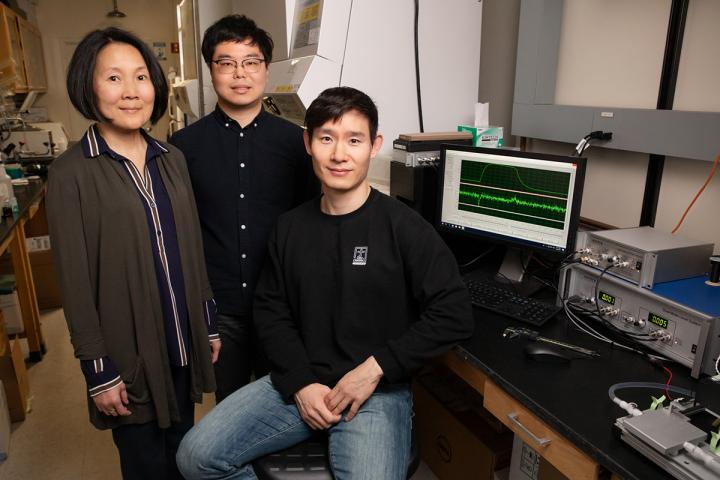
Credit: Photo by L. Brian Stauffer
CHAMPAIGN, Ill. — Researchers report that a protein known to be important to protein synthesis also influences muscle regeneration and regrowth in an unexpected manner. The discovery, reported in the Journal of Clinical Investigation, could one day lead to new methods for treating disorders that result in muscle weakness and loss of muscle mass, the researchers said.
Scientists have long studied leucine tRNA-synthetases, or LRS, for its role in protein synthesis, said University of Illinois cell and developmental biology professor Jie Chen, who led the research.
“In the last 5-10 years, scientists have begun to realize that LRS and other proteins like it have functions independent of protein synthesis,” Chen said. “Previously, my lab and other labs discovered that one of such functions of LRS is that it can regulate cell growth. Our new study is the first report of its function in muscle regeneration.”
Chen and her colleagues used mammalian cell cultures and mice in the new study. They compared the speed of muscle repair in mice with normal and lower-than-normal LRS levels. They discovered that mice with lower levels of LRS in their tissues recovered from muscle injury much more quickly than their counterparts with normal LRS levels.
A 70% reduction of LRS proteins in the cell does not affect protein synthesis, Chen said.
“But lower levels do positively influence muscle regeneration,” she said. “We saw that, seven days after injury, the repaired muscle cells are bigger when LRS is lower.”
While it is not possible to lower LRS in human subjects, the researchers sought another method to block its effects.
Chen and her colleagues further unraveled the exact molecular mechanism by which LRS influences muscle regeneration. This led them to hypothesize that a nontoxic inhibitor that their collaborators in South Korea previously developed would block the effect of LRS on muscle cells without interfering with its role in protein synthesis.
“We showed that this inhibitor works both in mammalian cells and in mice,” Chen said. Muscle repair occurred more rapidly – and the regenerated muscles were stronger – when the inhibitor was present.
As the science progresses, researchers are gaining greater insights into the multifunctionality of proteins once thought to have only a single role in cells, Chen said.
“We now understand that ‘protein moonlighting,’ where one protein does many different things in the cell, is the norm,” she said.
Chen and her colleagues are investigating the effect of LRS on older mice, which tend to rebuild their muscles more slowly and have less muscle tone than younger mice.
###
The National Institutes of Health and the Keck Foundation supported this research.
Editor’s notes:
To reach Jie Chen, call 217-265-0674; email [email protected].
The paper “Nontranslational function of leucyl-tRNA synthetase regulates myogenic differentiation and skeletal muscle regeneration” is available online and from the U. of I. News Bureau.
Media Contact
Ananya Sen
[email protected]
Original Source
https:/
Related Journal Article
http://dx.




